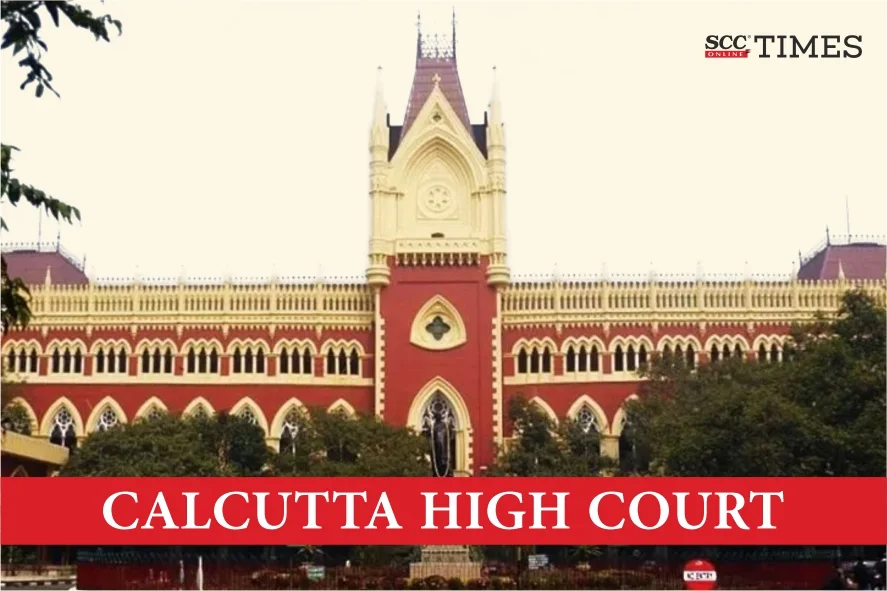Calcutta High Court: A petition was filed under Section 439 of Criminal Procedure Code/ Section 483 of the Bharatiya Nagarik Suraksha Sanhita 2023, by the petitioner who is in custody in connection with a case dated 31-03-2025 under Sections 132 (1) (c) read with 132 (5) of the Central Goods and Service Tax Act 2017, pending before the Additional Chief Judicial Magistrate Siliguri Darjeeling. Biswaroop Chowdhary, J. granted bail and held that the arrest of the petitioner without fresh incriminating material, without adjudication, and despite the petitioner’s cooperation was disproportionate and legally unjustified.
The petitioner a tax-paying businessman is the authorized signatory of Buddhu Sha and Co., a GST-registered distributor of fast-moving consumer goods, specifically tobacco products manufactured by ITC Ltd. under a distributorship limited to the Jaigaon region. The goods under this arrangement were delivered directly to the petitioner’s designated warehouse by ITC Ltd.
On 31-03-2025, the petitioner was arrested around 9:30 p.m. by officers of the CGST Department, Siliguri, pursuant to an Arrest Authorisation Order dated 30-03-2025, issued by the Commissioner of CGST & CX. The arrest was made under Section 132(1)(c) read with Section 132(5) of the CGST Act, 2017, alleging wrongful availment of Input Tax Credit (ITC) worth ₹37.29 crores based on invoices without actual supply of goods. Notably, this arrest was effected before filing any formal complaint before a Magistrate and without obtaining a judicial warrant.
The complaint was formally lodged by a CGST Superintendent. The central allegation was that vehicles mentioned in E-way Bills did not cross all toll plazas on the designated routes, leading to suspicion of fictitious transactions. However, this was starkly contradicted by a search and seizure operation conducted where, physical goods matching invoice and batch numbers were found at the business premises, CCTV footage confirmed the arrival and unloading of vehicles, no unaccounted goods or incriminating materials were discovered and the petitioner voluntarily extended full cooperation by providing access to banking and accounting records.Moreover, in an unusual move, CGST officers returned the next day seeking to retrieve and replace the original panchanama with a different version, which the petitioner refused, finding it suspicious.
The allegations also pertained to the financial years 2020-21 through 2023-24, and not to FY 2024-25. The petitioner had previously complied with multiple summons and document requests, including detailed submissions under Section 73 CGST Act proceedings, which were formally dropped on 22-02-2025, regarding FY 2020-21, demonstrating no evidence of fraudulent conduct.
Thus, the petitioner filed the bail application under Section 439 CrPC/483 BNSS seeking release from custody, contending that the arrest was premature, conducted without formal adjudication or demand notice under Section 74 of the CGST Act. The material collected (panchanama, CCTV footage, invoices, E-way bills) disproved the allegations. The CGST authority failed to act in a fair and proportionate manner and ignored favourable material in a calculated manner and the petitioner was consistently cooperative and posed no flight risk or threat to the investigation.
Counsel for the CGST Department submitted that availment of ITC without actual receipt of goods violates Section 16(2)(b) CGST Act. The E-way bills related to 232 invoices did not show toll plaza crossings, a strong indicator of fictitious transactions. The toll data analysis revealed 150 consignments showed “no toll record” and 40 vehicles were repeatedly used—pointing to deliberate planning. There were two specific E-way bills which had anomalies, reinforcing their suspicion and the arrest was justified under Section 69(1) CGST Act based on the “reasons to believe” standard. They also emphasized that the GST framework requires physical movement of goods to claim ITC, and that fake movement undermines the GST credit chain.
The Court observed that the stock verification clearly contradicted the CGST Department’s allegation. The batch numbers matched, physical stock existed, and CCTV confirmed unloading of goods. This discredits the claim that no goods were received. The Court noted that absence of toll data alone does not prove non-receipt of goods. Such absence is not a statutory requirement, and the possibility of alternate routes or toll-exempt scenarios cannot be ruled out. The Court further noted that CBIC’s 2022 guidelines were not adhered to and no urgent need for custodial investigation existed. The petitioner had consistently cooperated, provided evidence, and posed no flight risk. Therefore, given the panchanama findings, the Authority should have conducted further verification or issued a show cause notice before arresting or filing a complaint.
The Court held that the arrest of the petitioner without fresh incriminating material, without adjudication, and despite the petitioner’s cooperation was disproportionate and legally unjustified. The panchanama dated 30-03-2025, which exonerates the petitioner, was deliberately disregarded. The arrest power under Section 69 of the CGST Act was misused and exercised in violation of constitutional safeguards and judicial guidelines. Any further detention was not necessary, as investigation could proceed without custodial interrogation.
Accordingly, the petitioner was ordered to be released on bail with two sureties of ₹10,000/- each, subject to satisfaction of the learned ACJM, Siliguri. He is to cooperate with the CGST authorities as required and not act prejudicially to the ongoing proceedings.
[Santosh Kumar Sah v. Union of India, CRM (R) 13 of 2025, decided on 17-04-2025]
Advocates who appeared in this case:
For the petitioner: Mr. Amales Ray, Ld. Sr. Adv. Mr. Dhiraj Lakotia, Adv. Ms. Radhika Agarwal, Adv.
For the respondents: Ms. Meghna Joshi, Adv. Ms. K. Kundu, Adv. Mr. Nigam Mittal, Adv. Ms. Prerna Mitra, Adv. Mr. Ratan Banik, Adv. Mr. Bishwaraj Agarwal, Adv







